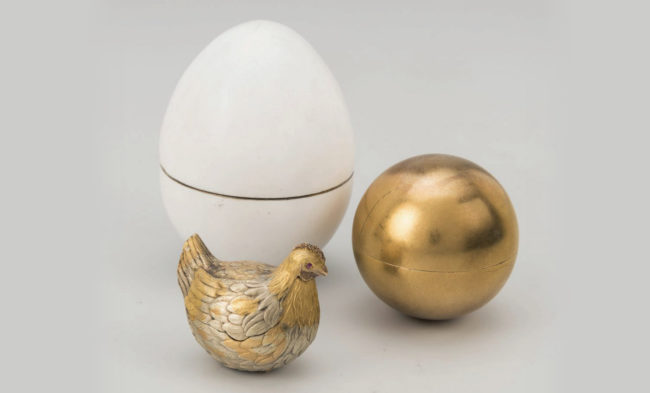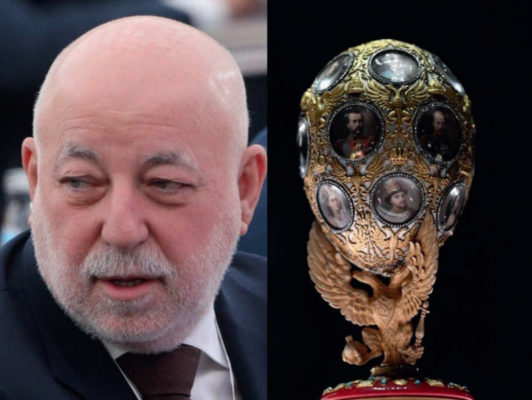Britain’s Victoria and Albert Museum (V&A) is currently in possession of a Fabergé Egg which was loaned to it for an exhibition. Russian oligarch Viktor Vekselberg acquired the bejewelled egg some time ago but has passed the ownership on to a company in Panama.

Tom Keatinge, Director of Centre for Financial Crime and Security Studies at defence and security thinktank RUSI, said that as Vekselberg had personally been sanctioned and the egg is a financial asset, the conditions of the sanction are fairly clear. “If you break it down, whether it’s an egg or a yacht or a house, it can be an asset of a sanctioned person. Be it a port, estate agent or museum, [everyone has] the same obligations,” he said.

The egg is made of solid gold and enamel, and stands just over two inches tall. Its two halves can be opened to reveal a golden yolk. Inside the golden yolk is a golden hen with ruby eyes. The egg was the first in a series of more than 50 such jewelled eggs made under the supervision of Peter Carl Fabergé for the Russian Imperial family. It was delivered to Tsar Alexander III and given to his wife Maria Feodorovna in 1885. The tsarina enjoyed the egg so much that Alexander III quickly placed a standing order with Fabergé to create a new egg for his wife every Easter thereafter, requiring only that each egg be unique and that it contain some kind of surprise within it.
UK sanctions against the oligarchs are set to remain in place until “the last Russian tank has left Ukraine,” according to Liz Truss, the UK Foreign Secretary. V&A may be holding the egg for a long time.
Even if the museum decides to risk returning the egg to the Fabergé museum, it may run into further obstacles with transportation, as there are no direct flights from the UK to Russia.
Vekselberg, an oil and gas tycoon with a fortune estimated at $18 billion, owns nine Fabergé eggs. He’s paid over $100 million for them since beginning his collection in 2004.
Read below for related stories: